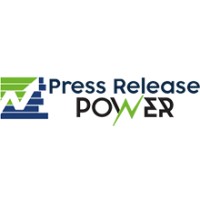Scoping: How to Make Money from Home Editing Courthouse Transcripts
Scoping: How to Make Money from Home Editing Courthouse Transcripts offers insights into the lucrative field of transcript editing. Learn how to turn your attention to detail into a profitable work-from-home opportunity by editing legal documents with precision. Discover essential skills, tips, and resources to start today.
Introduction to Scoping
Scoping is a specialized field within the realm of transcription and editing, focusing on the review and correction of courthouse transcripts. These transcripts are the official written records of legal proceedings, and they must be accurate, clear, and error-free. Scopers play a critical role in ensuring that these documents meet high standards of quality.
In this guide, we'll explore how you can leverage scoping to make money from home. We'll cover the essentials of the scoping process, the skills required, and strategies for finding and securing scoping opportunities. Additionally, we'll address some common questions about the profession to help you get started.
Understanding the Role of a Scoper
A scoper is responsible for reviewing transcripts produced by court reporters, correcting any errors, and ensuring the final document is accurate and readable. This role involves:
Error Correction: Identifying and correcting typographical errors, misspellings, and formatting issues.
Consistency Checking: Ensuring that the transcript adheres to legal and formatting standards.
Clarification: Making sure that any ambiguous or unclear parts of the transcript are accurately represented.
Scopers work remotely, making this an ideal job for those looking to earn money from home. The demand for accurate courthouse transcripts means there is a consistent need for skilled scopers.
Skills and Qualifications Needed
To be successful in scoping, you'll need a specific set of skills and qualifications:
Attention to Detail: A keen eye for spotting errors and inconsistencies is crucial.
Knowledge of Legal Terminology: Familiarity with legal jargon and courtroom procedures helps in understanding and correcting transcripts accurately.
Strong Grammar and Language Skills: Excellent command of grammar, punctuation, and language is essential.
Experience with Transcription Tools: Familiarity with transcription software and tools is beneficial.
Training or Certification: While not always required, training or certification in scoping or transcription can be advantageous and may increase your job prospects.
Finding Scoping Opportunities
Securing scoping jobs from home involves several steps:
Networking: Connect with court reporters, transcriptionists, and legal professionals who may need scoping services. Joining professional organizations and attending industry events can help expand your network.
Online Job Boards: Platforms like Upwork, Freelancer, and specialized transcription job boards often list scoping opportunities.
Direct Outreach: Reach out to court reporting firms and transcription agencies directly to inquire about available scoping positions.
Creating an Online Presence: Develop a professional website or portfolio showcasing your scoping skills and experience. This can help attract potential clients and employers.
Setting Up Your Home Office
To work effectively from home, it's important to set up a dedicated workspace:
Comfortable Work Area: Ensure you have a quiet, comfortable space where you can focus on your scoping tasks.
Reliable Technology: Invest in a good computer, high-speed internet connection, and transcription software. Ensure your equipment is up-to-date and capable of handling the demands of scoping work.
Organizational Tools: Use organizational tools like file management software and digital note-taking apps to keep track of your projects and deadlines.
Pricing and Payment Structures
When working as a scoper, you'll need to understand how pricing and payment structures work:
Hourly Rates: Some scopers charge by the hour, with rates varying based on experience and the complexity of the work.
Per Transcript Rates: Alternatively, you might charge a flat rate per transcript. This can be advantageous if you’re able to complete transcripts efficiently.
Negotiation: Be prepared to negotiate rates with clients or employers based on the scope of work and your level of expertise.
Tips for Success in Scoping
To excel in scoping and build a successful home-based career, consider the following tips:
Stay Updated: Keep up-to-date with changes in legal terminology and courtroom procedures to ensure your transcripts are accurate.
Build Relationships: Establish strong relationships with court reporters and clients to secure repeat business and referrals.
Continuous Learning: Invest in ongoing education and training to enhance your skills and stay competitive in the field.
Challenges and Solutions
Working as a scoper comes with its own set of challenges. Here’s how to address some common issues:
High Workload: Managing a high volume of transcripts can be overwhelming. Develop time management skills and use productivity tools to stay organized.
Complex Terminology: Legal jargon can be difficult to understand. Use legal dictionaries and seek clarification from clients or experts when needed.
Maintaining Accuracy: Ensuring every transcript is error-free can be demanding. Implement a thorough review process and take regular breaks to maintain focus and accuracy.
Frequently Asked Questions
What is scoping in the context of courthouse transcripts?
Scoping involves reviewing and correcting courthouse transcripts produced by court reporters to ensure accuracy, consistency, and readability.
Do I need a special certification to become a scoper?
While certification is not always required, it can be beneficial. Training or certification in scoping or transcription can enhance your skills and improve job prospects.
How do I find scoping jobs?
Scoping jobs can be found through networking, online job boards, direct outreach to court reporting firms, and by creating an online presence.
What equipment do I need to work as a scoper from home?
You’ll need a comfortable workspace, a reliable computer, high-speed internet, and transcription software. Organizational tools can also help manage your projects.
How should I set my rates as a scoper?
Rates can be set based on an hourly basis or per transcript. Consider your level of experience, the complexity of the work, and be prepared to negotiate with clients.
What are some common challenges in scoping, and how can I overcome them?
Challenges include managing a high workload, understanding complex terminology, and maintaining accuracy. Address these issues by developing time management skills, using legal dictionaries, and implementing a thorough review process.
By following these guidelines and continuously improving your skills, you can successfully build a rewarding career in scoping from the comfort of your home.
Get in Touch
Website – https://www.webinfomatrix.com
Mobile - +91 9212306116
Whatsapp – https://call.whatsapp.com/voice/9rqVJyqSNMhpdFkKPZGYKj
Skype – shalabh.mishra
Telegram – shalabhmishra
Email - info@webinfomatrix.com
What's Your Reaction?















